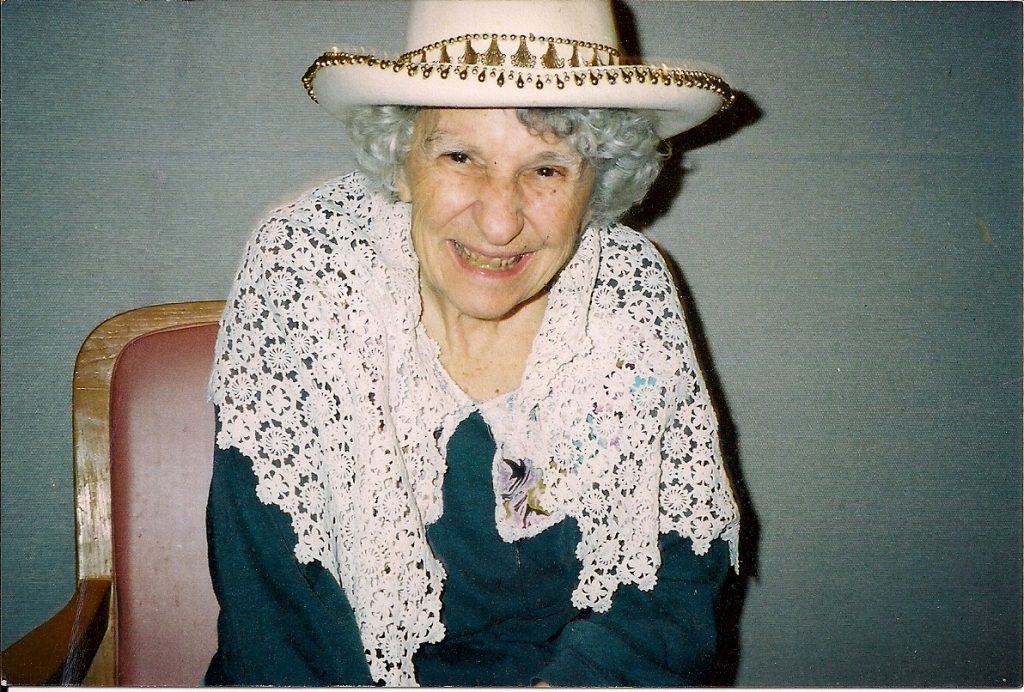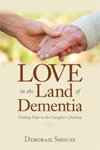Inspiration
Transferring Skills and Adapting Purpose: Wisdom from Paulan Gordon
As Director of Operations for a national call center, Paulan Gordon’s work required an intense travel schedule, detailed project management skills, and a rigorous adherence to industry standards. So when she started feeling confused, she attributed the struggles to stress. Some days, she felt so overwhelmed that she locked herself in her office and called her husband to come pick her up early.
She was asked to step down from her position. Initially, the loss of her career was both financially and emotionally staggering. Suddenly, she had no purpose, no income, and no peer group. She had to reinvent her life.
In 2012, at the age of 57, Paulan was diagnosed with vascular dementia. After a period of uncertainty, Paulan began using her interpersonal, communication, and management skills and volunteering as a mentor and a dementia advocate.
“I’ve learned there’s a lot more to life than success in business,” she says.
Building Friendships
When she was working, Paulan was so busy she didn’t have time to build friendships. Now, through her mentoring, she has developed deep connections with others who are living with dementia.
“The relationships you create within the walls of dementia are so intimate,” Paulan says. “People talk very openly about their personal problems and challenges. I feel enriched, being part of these conversations and having such close friends.”
Her work as a dementia mentor has also given Paulan a sense of purpose.
“I work with four people and all of them appreciate my phone calls and my caring. That appreciation boosts my spirits,” she says.
Through her mentoring and advocacy work, she’s met doctors, lawyers, teachers, entrepreneurs, and others who have applied their intelligence and skills to living successfully with dementia.
Speaking out for Adaptation
When Paulan gave business speeches, her hands grew clammy and her mouth dry. She battled nervousness and worried about getting facts wrong and making errors.
“Now, I don’t get very nervous,” she says. “I’m speaking from my heart about things close to me, so I can’t make a mistake. Plus, I’m motivated: I want to help others and I want people to understand the truth about dementia.”
Letting Go of Difficulty
“You’ve asked me that question five times already,” Paulan’s husband says.
“Then it must be really important,” she answers.
Paulan is happy she can laugh at trying situations. She has let go of things she can no longer do. She stopped driving because spatial relationships were difficult for her. Paulan knows she’s forgetful and sometimes repeats herself. Her husband and family take that repetition in their stride. She’s also trained her family not to interrupt her when she’s talking, because she can easily lose track of what she was saying.
“My husband doesn’t call attention to my deficits and I forget I have them,” she says.
Proactively, he reminds her about meetings and appointments. She uses a big planner and makes detailed notes, including instructions on how to sign onto the internet, and notes on various conversations.
Changing Reading and Money
Paulan is constantly using her creativity to solve problems. She was an avid reader, but her memory retention has diminished and understanding complicated novels with dozens of characters became a challenge.
“If I put down a book, I can’t remember what happened at the beginning,” she says. “Although there is an upside to the situation: I could save money reading the same books over and over again.”
She temporarily put down her tomes and started reading short stories and magazines. This allowed her to continue her beloved hobby without so much frustration.
She also worked around her reduced mathematical abilities. When she shops, she hands the cashier an extra dollar, so she doesn’t get overwhelmed by counting out coins.
“I hope people are honest when they give me change,” she says.
Stirring up her Spirits
“I don’t worry about dying” she says. “I basically feel positive.”
Many people have a distorted view of dementia. With her speaking and writing, Paulan helps people understand the truths of the disease.
“I like sharing ways to support friends and loved ones who are living with dementia,” she says. “This information helps prevent decline and dramatically increases the well being of both care partners and people living with dementia.”
Meanwhile, Paulan’s advocacy and mentoring work has filled her life with depth, friendships, creativity, and purpose.
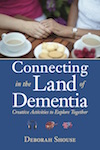
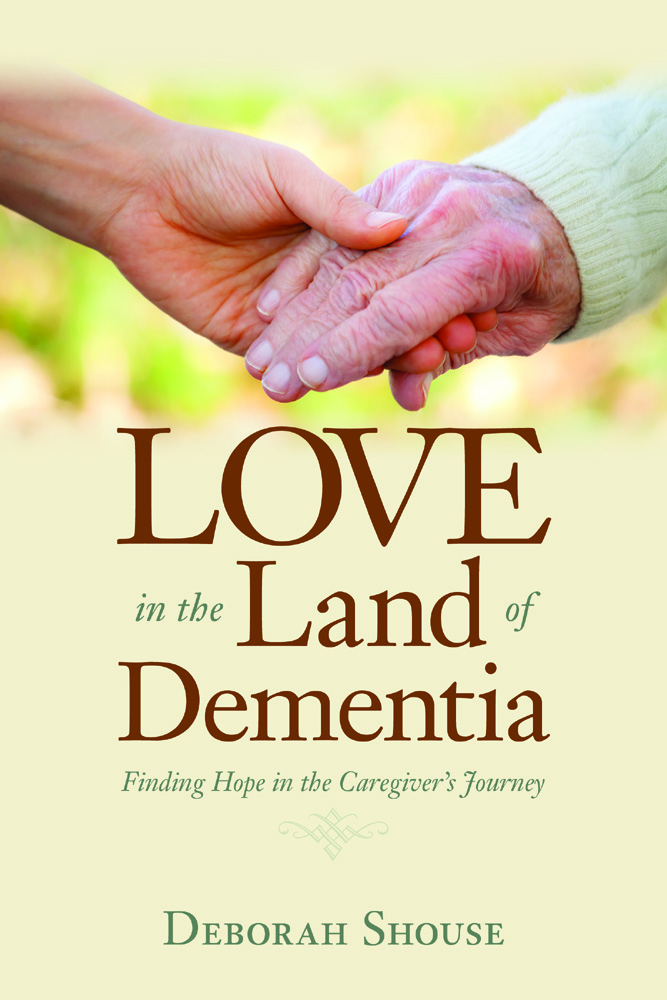
Moving from Depression to Purpose: Wisdom from Dementia Advocate and Mentor Robert Bowles, Jr.
Once again, Robert Bowles, Jr., age 65, could not sleep. Since he’d been diagnosed with Lewy Body Dementia two years ago, his nights had randomly been plagued with terrifying hallucinations and vivid nightmares that he often acted out. He was exhausted, depressed, and anxious. Plus, he had had to sell his beloved pharmacy and prematurely end a meaningful 40-year career as the community’s trusted pharmacist.
That dismal night, Robert awoke at 1:00 a.m. and dragged himself into his office. He felt a horrible heaviness in his heart
and he cried out to God.
“God,” he said, “Take me home. I don’t want my family to go through this disease. I can’t endure this any longer.”
As he sank into a chair, he heard a voice, as strong and clear as if someone was sitting right beside him: “Use your five life principles for people who are living with dementia.”
Robert slapped his hand onto his forehead and said to himself, “God is not through with me yet.”
And that realization filled him with hope.
Amending His Purpose: The Five Principles
Love, care, education, encouragement, and hope: these were the principles Robert adhered to with his work, his family, and in his community.
“Understanding that those same tenets could help families affected by dementia was a transformational experience that gave me purpose,” he says.
Robert believes, “People living with dementia need to be encouraged to maintain purpose. While your original purpose may not be possible, you can always modify your vision and continue to live with depth and meaning.”
Throughout his career, Robert was always purpose-driven and outcome-oriented. Along with those qualities, he infuses his current advocacy and mentoring work with compassion. Early on, he realized, “People don’t care what you know; they want to know what you care about.”
Standing up for Personhood
“I made a decision that I would not let dementia define who I was,” Robert says. “ I’m still Robert. I believe in personhood.”
He also believes in learning, overcoming fear, and trying new things. Robert serves on the Georgia Alzheimer’s and Related Dementias (GARD) State Plan Group. He is involved with the Lewy Body Dementia Association (LBDA) and works with the Dementia Action Alliance and the Dementia Spotlight Foundation. He qualified as a trainer at the Rosalyn Carter Institute and he completed the coursework to became a Certified Eden at Home Associate. Robert has also been trained in Dementia Beyond Drugs, which teaches ways to decrease behavioral expressions without medications.
Recently, a lady asked him, “How are you able to speak when you have dementia?”
Robert answered, “When I sit there waiting to speak, my mind is all over the place. I wonder, ‘Will I be able to speak, or is the train going to jump the track?’ Then I tell myself, “I am going to have fun.”
He has fun and he speaks from his heart. Audiences connect with him.
Recently, Robert told his neurologist, “I don’t have time to die.” Every year, he typically speaks to more than 100 groups, sharing his story, breaking down stereotypes, educating people on dementia, and inspiring people to live with heart and purpose. ##
 Practical Tips from Robert
Practical Tips from Robert
Adopt the ASAP philosophy: Acceptance, Socialization, Attitude, and Purpose. Accept your disease and know you are not your disease. Keep and expand your social network. Live with a positive attitude. Be fueled by a purpose. ASAP was one of the touchstones that delivered Robert from “the Valley of Darkness.” “Both care partners and people living with dementia benefit from ASAP concepts,” Robert says.
Prepare for your doctor’s visits. As a practicing pharmacist, Robert noticed many people did not prepare for medical visits and therefore didn’t get the information they most needed. He keeps a list of his symptoms. As changes occur, write them down. Before the visit, select your top three issues. Hand this list to the nurse to give to the doctor. “You save time and get better outcomes,” he says.
For more information about Robert, please visit:
https://lbdlivingbeyonddiagnosis.com/index.html
For more information about living well with dementia, please visit Dementia Action Alliance, https://daanow.org


My Mom’s New Holiday Tradition: Smiling
**
We roll into the memory care facility’s dining room just as the show is ready to start. The singer, Thelda, kicks off her shoes and presses play on the boom box. Above the cheerful sound track, she sings Jingle Bells. She dances across the room with the remnants of ballroom steps. She stops in front of Mom and sings right to her. She gets on her knees, so she can look into Mom’s eyes, and keeps singing. Mom notices her and smiles a little.
Thelda moves on, singing to each of the patients gathered around, so intent on making a connection that she often forgets the words.
“Is it all right for your Mom to come to Christmas holiday events?” the activity director had asked me, when Mom moved in.
“Yes, I’d like her to go to any activities. She likes the extra energy.”
I think Mom would approve of my decision, even though she has never celebrated Christmas. Growing up, her immigrant mother held on to the Jewish spirit of her home, kneading dough for Friday evening challah, observing each holiday and prayer period in her own way. Some orthodox women followed the religious law that commanded a small piece of the dough be burned as an offering to God. My grandmother was poor; she did not believe in burning good food, regardless of tradition. So she sacrificed a portion of the dough to her youngest daughter, my mother Fran. She created a “bread tail,” leftover dough that she baked, then smeared with butter and sprinkled with sugar . When Mom used to talk about her mother, she always mentioned this special treat.
Even when I was growing up, and we were the only Jewish family in our neighborhood, my mother still did not sing Christmas song. She let the holiday rush by her, like a large train, whooshing past and leaving her behind.
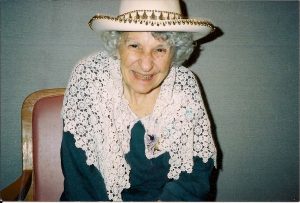 Now, I am singing Christmas carols to my Mom for the first time and she is smiling. She has moved beyond the place where the religions are different, beyond the place where she wants to separate the dough and make a sacrifice for tradition. Her new tradition is anyone who can make her smile.
Now, I am singing Christmas carols to my Mom for the first time and she is smiling. She has moved beyond the place where the religions are different, beyond the place where she wants to separate the dough and make a sacrifice for tradition. Her new tradition is anyone who can make her smile.
With each song, from White Christmas, to Silver Bells, to Frosty the Snowman, Thelda moves back to Mom, tapping her, acting sillier and sillier. Each time, Mom lifts her head and widens her mouth for a second.
For her finale, Thelda puts on a big red nose and sings Rudolph. When she dances in front of Mom with that scarlet nose, Mom laughs, her face a miracle in pure enjoyment. I laugh too, so delighted to see Mom engaged and absorbed.
Two weeks from now, I will bring a menorah and candles into my mother’s room. My father and I will have a short Chanukah ceremony with Mom. She will pick at the shiny paper covering the Chanukah gelt (chocolate candy disguised as money). She will slump over in her chair. But she will come back to life when she sees me, her only daughter, wearing a big red nose as I light the menorah.Here’s to a meaningful and fun holiday season.
I look forward to connecting with you when I resume blogging in early January.


Let’s Go to the Movies: A Dementia-Friendly Series
“Let’s go to the movies,” my dad often said to my mom. My parents would have loved our Movies and Memories series, now starting its second year. We are excited to announce our partnership with the Kansas City Boys Choir and the Kansas City Girls Choir this season. Some of their outstanding performers will be joining us at each event.
Already, the series is making a difference in a variety of ways. Additional libraries in Missouri and other states are interested in implementing the program. And our library is so committed to becoming more dementia-friendly that it is having special training for its staff, courtesy of the Alzheimer’s Association — Heart of America Chapter. Please share this invitation with those who would enjoy it. And if you’re in the Kansas City area, please join us. It’s free and open to all. Let’s go to this movie series!
Connecting Through Reading Together: Wisdom from Anne Vize
Connecting through reading together has always been part of my life, starting with my mother reading me Mother Goose and Grimm’s Fairy Tales. Even when Mom was living with dementia and could no longer track a Shakespearian play or a complicated novel, she loved holding books and she enjoyed hearing lyrical poetry. I was excited when I discovered the work of Anne Vize, Curriculum and education writer, instructional designer, and author of ‘Reading in the moment – activities and stories to share with adults with dementia’ published by Speechmark.
Anne graciously shared her insights for this blog.
Connecting Through Reading Together: Wisdom from Anne Vize
Why is reading together so important?
Reading is a powerful but sadly often forgotten tool for supporting people who have dementia. Sometimes people worry that they might not read fluently enough, or they might make mistakes when they read, and so avoid doing it all together. But people have been reading together throughout time, and the idea of sharing pose, poetry and stories is an integral part of who we are as people. Just because someone has dementia does not mean they are unable to benefit from the joy of sharing a moment in time, with a great book or piece of text.
How do you get started?
Start small and keep the reading sessions to around 10-15 minutes to begin with. Plan ahead so you know what you are going to read and the sort of ‘voice’ you will use to read it. Some texts are more suited to a bouncy, entertaining voice while others are better suited to a slow, lyrical, smooth reading style. Pick the one that suits the piece you are reading, as well as the one that suits who you are as a reader.
How do you set the scene?
Sometimes a sensory experience to begin with can be useful, or a brief discussion about the personal experiences of the listener that might relate to the story. You can make a link with seasonal activities such as Easter, Christmas, Passover, Independence Day or Anzac Day, but be aware that these festive or commemorative times might trigger particular memories for some people that might be unintended. Be sensitive and make sure you know a little about the piece you have chosen and the person you are reading to.
What kinds of stories/books do you suggest?
Read something you are comfortable with. Avoid texts with long, complex sentence structures or multiple characters, as these can be difficult for the person living with dementia to follow. Focus on stories you can read in a single session, with a limited number of characters, and a plot that only moves in a forwards direction (not something that jumps from one period of time to another, as sometimes happens in the short story genre).
How do you use the stories as conversation catalysts?
You can link what you read with a discussion, activity, or sensory experience, if it seems appropriate. For example, you could read the Australian bush poet Banjo Patterson and then combine this with a sensory experience looking at photos of the Australian bush, exploring plants, and leaves outdoors or listening to the sounds that horses hooves might make on the ground. If you are comfortable wearing a bush hat (called an Akubra in Australia) and a check shirt as you read some bush poetry, all the better!
How do you make the experience meaningful and fun?
Use your judgment and knowledge of the person you are reading to. Think about her needs and personal comfort and monitor how she is faring during your reading session. Think about sensory elements in the room that might interfere with your reading, such as outside noises, distractions outside the window, people moving in and out with meals or drinks, and the like. These can all take away from your reading experience.
Reading has a tendency to create a feeling of peace, calm and harmony for people and can be a trigger for more conversation and interaction. Even if the person does not recall the reading experience after you have finished, they will retain the mood and feeling that the piece has created for them and this may well last for long after the actual reading experience has ended.
To learn more about Anne, please visit, https://www.facebook.com/pg/Anne-Vize-Writing-Services-126820110730385/posts/?ref=page_internal

Reading in the Moment: Activities and Stories to Share with Adults with Dementia
Deborah Shouse is the author of Connecting in the Land of Dementia: Creative Activities to Explore Together and Love in the Land of Dementia: Finding Hope in the Caregiver’s Journey.
They Yearned for Freedom
I often think of my grandparents, each of whom bravely made his and her way to America. They sought opportunity and they yearned for freedom. Freedom to be safe from persecution, freedom to practice their religion, freedom from stigma, freedom to be their own true selves. The same things we all want. Here’s to living our dreams and to helping others live their dreams.
When I was growing up, in the 1950s, the Fourth of July was a true day of freedom. We had a huge family picnic at our relative’s house. The festivities included a swimming pool and was held in a neighborhood without fences, which meant we kids could run breathlessly through the yards, chasing each other, playing tag, baseball and hide ‘n seek.
But first, we politely greeted our relatives. Then our aunt said, “How about a drink?” to my parents. And “Kids, there’s sodas in the cooler.” Dad wanted Scotch on the rocks and Mom asked for gin and vermouth. Mom joined the women who were arranging the food on long picnic tables and Dad hung out with the men, who were grilling burgers and dogs.
That’s when the freedom began. My younger brother Dan and I, normally allowed to drink only juice and milk, eagerly surveyed the array of icy sodas and we both chose Grape Nehi.
Quickly we were swept into a game of tag. Some of the kids were already wet from swimming and others still wore shorts. Underneath our clothes, Dan and I had on our bathing suits and were ready to leap into the pool and get immersed in a game of Marco Polo.
The adults were busy with drinks and conversations and no one admonished us to be quieter, slower, or more polite. We were a band of glowing energy, sweating with the joy of freedom and racing to escape being IT. We were a burst of independence, throwing off our shorts and t-shirts and cannonballing into the pool, shrieking, splashing, and laughing.
After several hours, the women beckoned us over. We dropped onto the lawn and ate ravenously off drooping white paper plates loaded with baked beans, hot dogs, corn, cole slaw, and potato chips. Then we spit watermelon seeds at each other. Finally, we sated ourselves with rich chocolate cake.
By then, the fireflies flickered and glowed. My uncle handed out sparklers without even warning us to be careful. Those dangerous sulphury sparks thrilled us. We raced about, a sparkler in each hand, writing our names on the sky, streaking across the dewy grass, leaving a trail of smoldering light behind us.
At the end of the evening, my uncle set up the fireworks. We sat on blankets, this time with our families. We were smudged, sweaty, and stained with watermelon juice and dirt. I leaned against Mom and my brother snuggled next to Dad. As the fireworks spurted up into the sky, we pressed our hands against our ears, the noise and brilliant layers of light bursting around us.
“God bless America,” my father said.
“America,” the adults echoed, their voices hushed and reverent.
Only later, when I was older, did I realize the significance of the holiday: my relatives were all first generation Americans—and on that day, among others, they were grateful their parents had escaped the tyranny and religious persecution of Poland, Russia, and Hungary and had come to this welcoming land.
But that night, I was simply worn out from my own childlike version of independence. Dan and I leaned against our parents, fighting our tiredness, and let the sounds of freedom ring us to sleep.
Deborah Shouse is the author of Connecting in the Land of Dementia: Creative Activities to Explore Together and Love in the Land of Dementia: Finding Hope in the Caregiver’s Journey.
Redefining Dementia and Focusing on Wellbeing
Several months ago, I was delighted to write an article highlighting some of the American leaders in dementia care. I will be occasionally spotlighting luminaries from that article who are redefining dementia and focusing on wellbeing.
A version of this piece appeared in Signpost Journal: Journal of Dementia and Mental Health of Older People. This excellent journal from Wales, UK, offers a variety of informational and inspirational articles. I am honored to be a contributor.
Redefining Dementia and Focusing on Wellbeing
Late every afternoon, Roger paces the corridors, pausing at the locked door, fiddling with the keypad, sometimes even setting off the alarm before he resumes his pacing. Instead of labeling Roger’s behavior as “sun downing,” Allen Power, MD, teaches practitioners to ask themselves: Which vital element of health and happiness is missing from Roger’s life: identify, connectedness, security, autonomy, meaning, growth, and joy. By doing this, Dr. Power is redefining dementia and focusing on wellbeing.
Dr. Power is a geriatrician and educator on transformational models of care, with a focus on people living with changing cognitive abilities. He is also the author of two groundbreaking books, Dementia Beyond Drugs and Dementia Beyond Disease: Enhancing Well-Being.
He defines dementia as, “A shift in the way people experience the world around them.”
“I believe that most of people’s on-going distress is due to the erosion of one or more aspects of well-being, from the care environment, and/or the person’s cognitive changes. Imagine these domains of wellbeing as seven glasses being emptied. Start filling the glasses and notice the results.”
As Dr. Power trains and consults with memory care communities around the world, he sees meaningful results from this compassionate approach. Suddenly, Mary is not constantly calling out night and day. Bill is not hitting the aides when they take him to the shower. Roger is not setting off the alarm or trying to open the exit door.
“There’s no sure answer,” Dr. Power says. “You need to understand the individual and experiment until you reach the root of the problem. People may be looking for connectedness. They may feel anxious and insecure. They may be bored.”
If someone is repeatedly trying to leave the building, Dr. Power might ask: Are they feeling insecure? Are they feeling lonely and trying to reach someone they love? Are they yearning to connect with an important part of their identity, such as a beloved garden, horse, dog, or pick up truck?
Working toward an Inclusive Future
Dr. Power uses a strength-based approach to work on enhancing wellbeing. He encourages developing “brain ramps,” cognitive supports that help people move through the day in meaningful ways.
“With this positive approach, I can now look at a challenging scenario and offer insights,” Dr. Power says.
Beyond the care of the individual, Dr. Power believes in examining ingrained rituals and routines of institutionalized care, including all meals at a certain hour, with an aim of moving to a more individualized and meaningful mode of care.
“We can make mundane activities such as bathing or getting ready for bed more meaningful and relational than we normally do in long-term care,” he suggests.
“We need to support people instead of dehumanizing them,” he says. “We need to be inclusive and try harder to understand them.”
Dr. Power believes integration into society is a basic civil right.
“Imagine if people who lived with cancer, arthritis, or diabetes could only live with others who shared their medical condition. There’s a problem with seeing the disease instead of the people,” he says.
Dr. Power is contributing to a future where all communities are dementia inclusive and where dementia is just viewed as another way that people see the world.
For more about Allen Power, MD, internationally known geriatrician, educator, and author , please visit:
Website: http://www.alpower.net
Dr. Power is participating in Dementia Action Alliance’s Reimagine Life with Dementia Conference, June 25-27.
http://daanow.org/wp-content/uploads/2016/10/DAA-Conference_042817.pdf
Deborah Shouse is the author of Connecting in the Land of Dementia: Creative Activities to Explore Together and Love in the Land of Dementia: Finding Hope in the Caregiver’s Journey.
Art as a Creativity Catalyst: Featuring Grace and Spencer Townley-Lott

How do we keep our sense of connection and creativity through the caregiving journey? That was a question I often asked myself. I wanted to share this story of an extraordinary couple– artist, dementia advocate, and social worker Grace Townley-Lott and her husband, puppeteer, actor, and playwright, Spencer Townley-Lott. Both use art as a creativity catalyst in their work and throughout their lives.
Their elders inspired them. Grace and Spencer were teenagers when her grandmother and his great-grandmotherwere going through a dementia journey. The experience was difficult and impactful.
Grace became a social worker, specializing in older adults and learning how to communicate with people who were living with dementia, often through art.
“It’s incredible how the arts open people up,” Grace says. “Someone who hasn’t painted in 20 years picks up a brush and creates something beautiful. Someone who hasn’t spoken in ages delivers a zinger of a one-liner. Every day, I see how creative people are and the connections that are still possible.”
As Grace unfurled her work experiences, Spencer gained a new understanding of his great-grandmother’s last years. He used those insights to create a critically acclaimed play, Blossom. This play, which utilizes puppets, was funded by a Jim Henson Foundation Grant. It focuses on James Blossom, a retired painter who is living with dementia and his family’s changing relationships.
Caregivers often wonder: “How do we keep creativity alive?” Grace and Spencer were kind enough to share some ideas.
Engaging in New Endeavors: Grace
Try to be in the moment, despite your list of tasks. Respond to and validate emotions. Be willing to go with the flow so you can allow creative sparks.
Pay attention to facial expressions as you invite your loved one to engage. If you start dancing, do their eyes light up and do they laugh? If you offer watercolors and cue your partner to touch the brush to wet paper, does he respond with joy when the color blooms on the page? If you’re having a hard time getting your partner to take a shower, croon a song and waltz with him into the shower. If it doesn’t work, that’s okay, too! But if it does work, it’s a lovely and practical way to connect, create, and take care of physical needs as well.
Sometimes it takes reframing the situation to view the possibilities. An outside person or idea can often expand your thinking.
Creativity Tips for the Care Partner: Spencer
Sometimes, physical actions can help release tension to allow for more creative thinking. Deep breaths and stretching can help you loosen up at first. In the theater world, we start every rehearsal with a physical game or action to help us get focused and leave our stress at the door. Try wiggling and shaking your feet and hands, giving yourself a brief facial massage, stretching as tall as you can, and twisting gently left and right. You’re getting the blood flowing, leaving the worried part of you in the hallway, and getting ready to create.
Allow room for surprises. Try to set the tone by modeling joy and openness. Be willing to try again.
Connecting through Art: Grace
I love viewing art with people who have dementia. Art is so subjective, so there’s no wrong answer to the question, “What do you see?” You can take that first question and lead it along into a fascinating conversation, one question at a time, building a fulfilling conversation with an individual or a group.
In these art viewings, a discussion about a painting can tap into emotions that would otherwise be left undiscussed, or it could lead into a beautiful conversation about the person’s childhood, for example. You never know where the conversation will lead! This creates a failure-free situation where a person with dementia can excel and their answers are valued.
Connecting through Puppets: Spencer
Puppets offer a level of separation for the care partner. For people living with dementia, a puppet’s cues may be simpler to decode, dramatically expressing joy or sorrow. The puppet can place a hand on a shoulder and offer many opportunities for sensory engagement.
Puppets can also encourage intergenerational play, creating connections between family members who may be unsure who to communicate with their loved one with dementia.
Keeping Your Creative Flow: Spencer and Grace
“Creativity is inherent in all of us,” Spencer says. “It’s a muscle you can strengthen. Be patient with yourself. The first day, you can only do one push-up. The second day, you can accomplish two or three. That’s what creativity and artistry feels like. Start small. You are laying the foundation. And it gets easier.”
“Be present and be ready for anything,” Grace says. “By asking your loved ones for advice, truly listening to them, and just being with them, you can form beautiful interactions throughout life.”
To learn more about Spencer, visit
To learn more about Grace, visit
gracetownley.com and theartfuloven.com
Grace is the Director of Truly Inspired Outreach and Education for True Care Home Health.
Deborah Shouse is the author of Connecting in the Land of Dementia: Creative Activities to Explore Together and Love in the Land of Dementia: Finding Hope in the Caregiver’s Journey.
An Insider’s Look at True Love: Charlie and Elizabeth’s Story
For years, I interviewed fascinating couples every week for a column in the Kansas City Star. Talking to people who are in love is always inspiring; often couples have to overcome enormous obstacles to bring their relationship into reality. One of my favorite stories stars two friends whose love and cosmic connection shines out from their faces and rings out with their words. Here is an short version of their beautiful story, an insider’s look at true love.
**
The coffee date was going better than Charlie, age 60, could have ever imagined. Just a month earlier, his best friend had burst into Charlie’s dark apartment and roused Charlie from his lethargy, saying, “You need to open up these windows and let some light in. You should start dating.”
“Who would go out with a guy who has Early Onset Alzheimer’s?” Charlie asked his friend.
“Maybe you should find out,” his friend replied.
So Charlie Miller pried himself out of his depression and joined eHarmony. And this coffee date with Elizabeth Hack was the result.
Elizabeth, age 55, was brilliant, interesting, energetic, curious, and shared many of Charlie’s interests. When she asked Charlie what he liked to do, he mentioned listening to music, attending theater, visiting with friends and volunteering for the Alzheimer’s Association.
Elizabeth knew nothing about Alzheimer’s. She asked, “Does someone close to you have the disease?”
“Yes,” Charlie answered. He wanted to say more but the words stuck in his throat. He had never envisioned this casual meeting could possibly turn into a romance. Yet he was already comfortable with Elizabeth and felt their relationship was meant to be.
Over the weeks, they continued seeing each other, meeting at concerts, going to plays, and exploring new restaurants. As their friendship deepened. Charlie knew he had to share his diagnosis with Elizabeth and he worried she wouldn’t be able to accept it.
But before he had a chance to broach the subject, Elizabeth, wanting to learn more about Alzheimer’s and about Charlie’s interests, visited the local Alzheimer’s Association website and noticed a picture of Charlie, as a volunteer and a person who has Alzheimer’s. She was shocked, dismayed, and confused. But she was also in love with Charlie; his diagnosis did not diminish her deep feelings for him.
 Charlie suggested she meet with his social worker at the Association to learn more about the disease. Elizabeth did that and though the information was daunting, her connection with Charlie was strong and true; she, too, felt they were destined to be together.
Charlie suggested she meet with his social worker at the Association to learn more about the disease. Elizabeth did that and though the information was daunting, her connection with Charlie was strong and true; she, too, felt they were destined to be together.
They began traveling and made plans to move in together. In a vineyard restaurant in Napa Valley, Charlie proposed and Elizabeth said Yes. Today, they are living happily, grateful they have found each other
“None of us know what will happen next,” Elizabeth says. “Just the other night, we were at a dinner party. One friend was just released from the hospital after heart surgery, and another friend was facing a hip replacement. I felt concerned for my friends and I felt so lucky that Charlie and I were happy and together. We are dedicated to living with joy and curiosity in the present moment.” 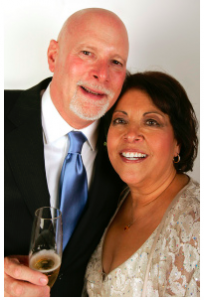
Deborah Shouse is the author of Connecting in the Land of Dementia: Creative Activities to Explore Together and Love in the Land of Dementia: Finding Hope in the Caregiver’s Journey.
One-minute Tips to Boost Your Happiness
For three weeks, a small pile of books huddled on the floor of my bedroom, next to the bureau. Every time I saw those books, I thought, “I should put them away.” But I walked past them, too busy. Until I read Amy Newmark’s new book, Simply Happy. One of her tips challenged me. “What can you do in one minute?” I took the “One-Minute Tips to Boost Your Happiness” challenge. I swooped into the bedroom, scooped up the tomes, and put them in the bookcase. Then I looked at the blank carpet and smiled. That quick action filled me with joy.
Amy Newmark left her high-powered career as a Wall Street analyst to take over the Chicken Soup series. After years of immersing herself in true stories of miracles, lessons learned, and hopes fulfilled, she wrote her own book, Simply Happy. I was so inspired by Amy’s insights, I asked her to offer a few ideas for busy care partners. Here are some of her “One-Minute Tips to Boost Your Happiness.”
Amy’s Insights for Care Partners
Counting Blessings Adds Up to Happiness
“The gateway to happiness is counting your blessings,” Amy says. “If you’re not grateful for what is in your life, how can you be happy?”
Scientific studies have proven that people who are actively grateful are happier, healthier, and more productive. Plus, they get along better with family members, colleagues, and others.
“You can easily learn gratitude,” Amy says.
To start, each day jot down three things for which you’re grateful. Strive for three different ideas each day. At the end of the month, you’ll have documented nearly a hundred blessings.
“Writing and speaking your gratefulness changes your perception,” Amy says. “You start looking for good things during the day. You can share your blessings with your partner and encourage him to consider his own.”
Some people drop the blessings into a box, and then read them at the end of the day or the end of the month.
Smiling Serves You
Smile even when you don’t feel like it. Often, when you smile, people smile back. This boosts everyone’s spirits and energy. If they don’t give you a grin, it doesn’t hurt you.
“Your smile will change the way people react to you,” Amy says.
Zipping from Zero to 60 Brings Joy
Set a timer for 60 seconds and zip through a task you’ve been putting off. File the insurance policy that sprawls across the dining room table. Unload the dishwasher. Take your vitamins.
“Doing even one of those tasks every day will lighten your spirits,” Amy says.
Dropping Perfection and Embracing Your Own Abilities
Abandon your pursuit of perfection and strive for your own version of excellence.
“When you try to be perfect, you can’t get a lot done,” Amy says. “For most of us, it’s better to do five things at 90 percent than one thing at 100 percent.”
I love Amy’s final piece of wisdom:
“Treat yourself nicely,” she says. “Use the fragrant soap you save for guests. Indulge in a rich bit of good chocolate or a fresh crisp apple. Put the good sheets you save for company on your own bed.
Give yourself a tiny pleasure every day.”
For more happiness boosts, read Simply Happy.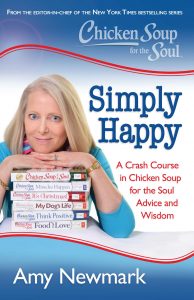
Visit Amy’s website at www.amynewmark.com or www.chickensoup.com
Extra tip from Deborah: If you like to write, consider submitting one of your own life stories to a Chicken Soup book. I’ve shared my stories in dozens of their books and it’s such a meaningful experience. Go to www.chickensoup.com, scroll down to the bottom, and click on “Submit Your Story” to learn how.
Deborah Shouse is the author of Connecting in the Land of Dementia: Creative Activities to Explore Together and Love in the Land of Dementia: Finding Hope in the Caregiver’s Journey.


